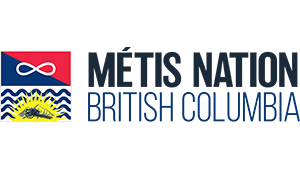PAN-INDIGENOUS FUNDING IGNORES DISTINCTIONS-BASED SPIRIT OF DECLARATION ACT
$12M Declaration Act Secretariat Doesn’t Address Indigenous Government Capacity
February 22, 2022 (Surrey, B.C.) – Métis Nation British Columbia’s (MNBC) government is disappointed that the 182-page budget document, and other supporting materials released today as part of Budget 2022, lack reference to Métis people. The budget also falls well short of the commitments made in the Declaration on the Rights of Indigenous Peoples Act.
A $12-million commitment to establish a new Declaration Act Secretariat falls well short of what has been requested by Indigenous peoples in BC. This entire funding envelope is earmarked to further increase the capacity of the BC public service to interact with Indigenous governments. None of the funds will be used to increase the capacity of Indigenous governments to interact with Victoria – something that has already been identified as a critical need.
“Budget 2022 reflects the Government of British Columbia’s commitment to supporting Indigenous Peoples broadly,” said Lissa Dawn Smith, MNBC President. “But MNBC, which represents one-third of the province’s Indigenous population, has fallen through the cracks - again. We will be meeting with our counterparts at the Province to find out why a distinctions-based approach was ignored in this funding announcement, despite our submission being clearly endorsed by the Select Standing Committee on Finance and Government Services.”
Budget 2022 lacks any distinct funding for Métis people in several key areas our MNBC government is working to advance including health, housing, women, youth, justice, digital connectivity, economic development and childcare. Ironically, the budget document does note that ‘meaningful reconciliation with Indigenous Peoples is embedded into government’s decision-making process.’
“Notwithstanding this budget, we remain hopeful the government’s yet to be unveiled Declaration on the Rights of Indigenous Peoples Act - Draft Action Plan will formally acknowledge the role our Métis government plays in supporting our people across the province.”
Since signing the first bilateral accord with the Government of British Columbia nearly two decades ago, MNBC has been working in close partnership with the Ministry of Indigenous Relations and Reconciliation and other ministries to advocate for the 90,000 self-identified Métis people in the province. In November 2021, MNBC and the Province signed a new letter of intent that proposes a new whole of government approach to Métis relations as a partnership that respects Métis self-determination. MNBC tabled an ambitious budget submission of $100 million over fiscal 2022-23 to support programs and services that further its mandate of closing the gap in the quality of life of Métis. A report from the Select Standing Committee on Finance and Government Services featured the recommendation to ‘provide support to Métis Nation British Columbia for programs and services to Métis people.’
Brought into law in 2019, the Declaration on the Rights of Indigenous Peoples Act states that Indigenous Peoples have the right to financial and technical assistance to support their rights. Métis are recognized in s.35 of the Constitution Act, 1982, under which there is no hierarchy of Aboriginal rights between First Nation, Inuit, and Métis peoples. In the Draft Principles that Guide the Province of British Columbia’s Relationship with Indigenous People, principle 10 states, ‘The Province of British Columbia recognizes that a distinctions-based approach is needed to ensure that the unique rights, interests and circumstances of Indigenous peoples in B.C. are acknowledged, affirmed, and implemented.’
“Our counterparts in Victoria are often surprised to learn that self-identified Métis comprise about one-third of B.C.’s Indigenous population,” added President Smith. “That’s why it’s so important to advocate for distinctions-based support that reflects the unique culture and circumstances of our Nation. It’s an exciting time for the Métis Nation, with more and more people discovering and embracing their Indigenous roots.”
